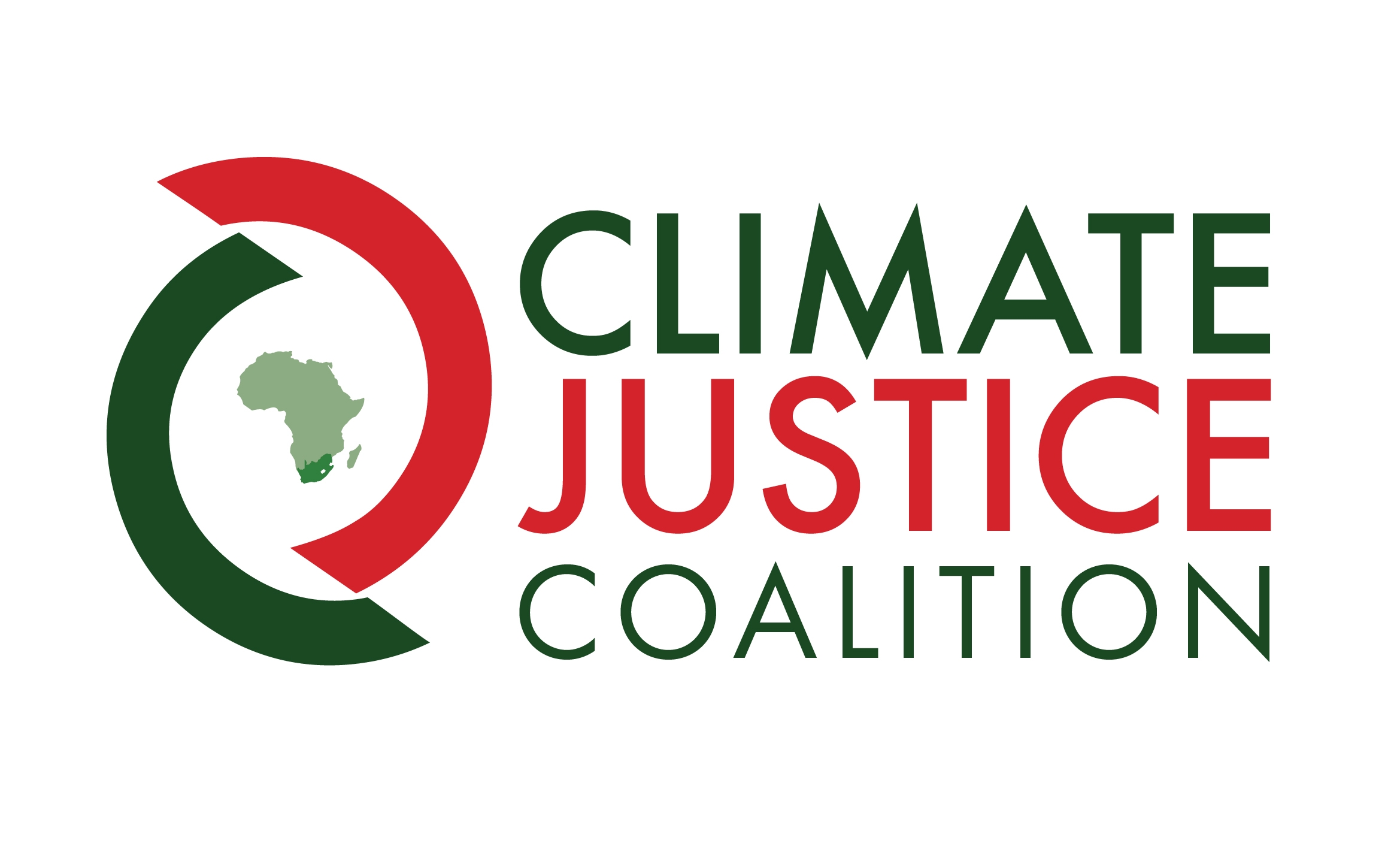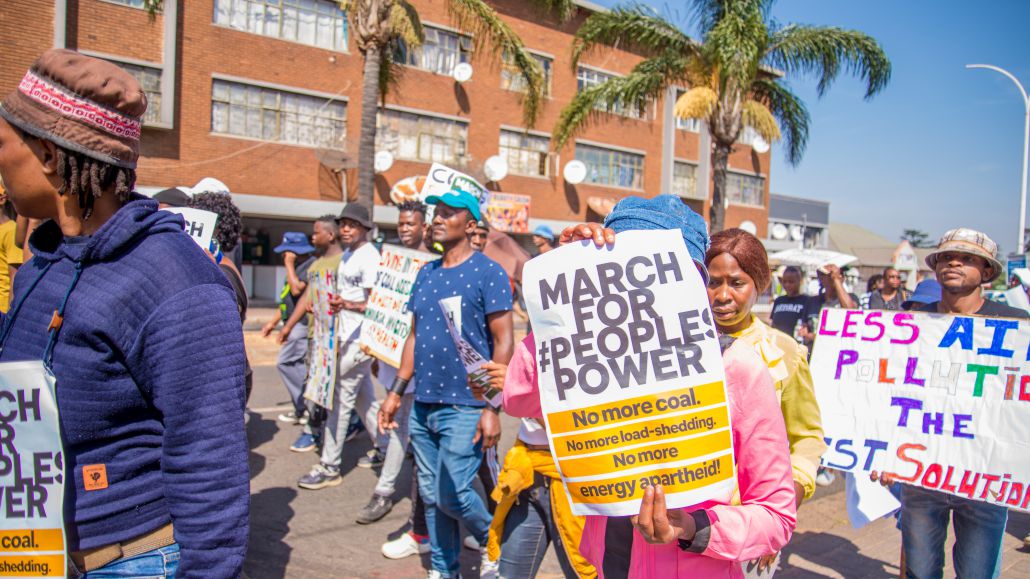It’s time to rebuild People’s Power!
FOR IMMEDIATE RELEASE 28 MAY 2024
South Africa — As South Africa goes to the polls, it is vital to ask ourselves what it means to have a truly democratic society where the voices of a country’s people meaningfully determine the direction of their communities and country. True democracy goes deeper than the limited democratic freedom of casting our vote to determine who will be in power. Beyond that, we must push for a meaningful democracy where we do not simply hand over power to elites every few years through our vote.
While South Africa’s elections are still technically free and fair, that deeper sense of democracy is being weakened and eroded in favour of corporate and corrupted interests, rather than the will of the people. That’s why the Climate Justice Coalition’s (CJC’s) People’s Power campaign aims to reclaim the state from rapacious extractive interests and put it to work in service of social and environmental justice.
Already on many fronts, we see the South African state turned into a neocolonial tool of corporate profiteering, rather than a government in service of its people. This is particularly true in energy and mining, where we have seen the hollowing out of meaningful democratic involvement in decision making and the elevation of corporate and corrupted interests over that of people.
Thirty years after South Africa’s democracy, our economic system is still dominated by a minerals-energy complex that has made us a country with some of the world’s worst levels of inequality, unemployment, and pollution. That is no coincidence, as our country is built on a rapacious, extractive economic system which is yet to transform.
If we look at who funds the major political parties, like the ANC, EFF and the DA, it is billionaires and big energy and mining interests, including the Oppenheimers, Patrice Motsepe, African Rainbow Minerals, and Harmony Gold. In addition, we see political parties, like the ANC, literally invested in rapacious coal, oil and gas corporations like Shell, Seriti, and United Manganese of Kalahari. It should be no surprise then that those parties are serving the interests of mining capital and corporations over the interests of the people.
The capture of major political parties by corporate interests means that none are delivering an agenda up to the scale of the economic and ecological crises we face, which require a deep transformation of our rapacious economic system. Indeed, as researchers at Wits University’s Southern Centre for Inequality point out, no party is delivering the sort of transformative agenda that could tackle our intertwined ecological and economic crises – although some fall much shorter than others.
We also see the hollowing out of democracy in terms of how our government departments and institutions fail to respond to their citizens, who they are supposed to answer to. For example, when the CJC’s members protested Mantashe’s Department of Mineral Resources and Energy (DMRE) in every province across the country asking for change to deliver on a more socially and ecologically just future, we were met with legal threats, insults and misinformation directed towards us. It’s no wonder that surveys from mining affected communities see the DMRE as serving the interests of corporations over that of communities.
Eskom has also been turned into a site of capture, where corrupted interests plunder the SOE and NERSA greenlights increasing tariffs which in effect cover the costs of that plunder. When our members have protested, calling for a Green New Eskom, we have often been met with indifference and disrespect. Our most recent protest saw Eskom officials agree to meet with us, only to turn us away at the gate, locking us out in the street.
When our members have protested big banks like Standard Bank, who are funding human rights violations, environmental degradation, and polluting fossil fuel projects, our right to protest is not protected by the state. Instead, police are sent in to (often violently) harass, intimidate and arrest activists, shut down protests, and serve the interests of big business over people.
When it comes to climate finance, the government enters into multi-billion-rand loan agreements with foreign governments and international financial institutions and signs off on projects without adequate public scrutiny or accountability. A whole slate of major projects was signed off under the Just Energy Transition Partnership Investment Plan without public information as to what the process for project selection was. This is a far cry from the energy democracy that is supposed to be at the core of a just energy transition.
While citizens struggle to even secure a meeting with our government departments and state-owned enterprises, records show that they often engage in untransparent closed door meetings with corporates, who openly lobby our government officials and shape policy agendas to suit them. The Ramaphosa administration has also deepened the influence of big corporations through having them drive major policy processes.
These examples illustrate a weakening of true democratic governance in favour of undue corporate influence. Some of that influence is legally considered corrupt but other forms of influence are technically legal even though they result in the corrupting of public policy processes and the erosion of meaningful democracy. It shows the deepening rule of corporate capital and corrupted cadres, rather than the rule of the people.
Many South Africans, when faced with the corruption of the state, opine that we should turn to the private sector to fix our problems. Yet, the answer is not to abandon the state and privatise basic services. As we’re starting to see in the energy sector, when things are handed over to the private sector and the public sector is left to decay, it can create deep inequalities. Those who can afford to invest in alternatives, like solar and storage, benefit significantly, while the poor working-class majority are left relying on an underfunded, poorly maintained, and increasingly expensive Eskom.
The dream of People’s Power is where we reclaim the state as a tool of transformation used to serve the interests of its people, to serve the public good, and deliver social, economic and environmental justice. As Shaun Hattingh from the International Labour Research and Information Group (ILRIG) points out:
“Outside or beyond voting, we need to begin to strive for a new system of direct democracy, where people genuinely have power once again. It is something the working class needs if society is to be changed for the better. But doing so will be harder than electing a few politicians every five years. Getting a better system than the one we have will require mobilisation and building organisations.”
While the task of rebuilding truly representative, democratic and accountable government institutions might seem far-fetched in our current reality, it is worth drawing inspiration from progressive examples across the world. For instance, a progressive red-green coalition successfully organised to gain political power in a deeply divided Colombia and is now pursuing a transformative agenda based on social and ecological justice.
If progressive movements do not build meaningful political power, the alternative is likely that regressive political forces will fill the vacuum. Already, we see that happening with the emergence of dangerous right-wing parties who campaign on xenophobia, tribalism and corrupted fossil fuelled nationalism. If progressive movements continue to falter, then those regressive forces are likely to strengthen, and roll back progress.
While we encourage members to exercise their right to vote, we call for people to mobilise well beyond the elections. The years ahead are vital, both to arrest the deepening social and economic crises facing South Africa, and to tackle the climate crisis before it spirals out of control. As we look forward to the task of rebuilding People’s Power, let us turn to the words of the late working-class leader and hero to many Ayanda Kota:
“Democracy is meant to be the will of the masses. Elections should be part of the endless struggle against the powerful minority. For those in power, elections are merely a means to an end. They are viewed as the fora through which people can express their voices, but once concluded, people must be disciplined and must know their place. Under democracy, elections should open up the possibilities of struggle and place the government in the hands of the people.”
Issued by the secretariat of the Climate Justice Coalition
For Media Enquiries, contact:
Shaazia Ebrahim, Climate Justice Coalition
comms@climatejusticecoalition.org
+27 83 320 2255
NOTES TO EDITORS
About the Climate Justice Coalition: The Climate Justice Coalition is a coalition of South African trade unions, civil society, grassroots and community-based organisations working together on advancing a transformative climate justice agenda, which tackles the inequality, poverty and unemployment that pervades South Africa.

